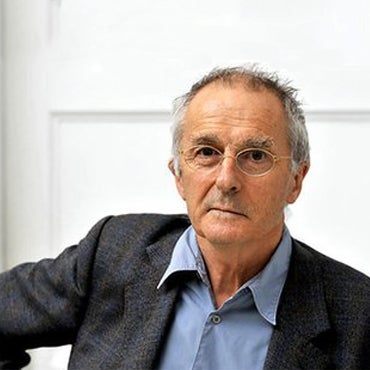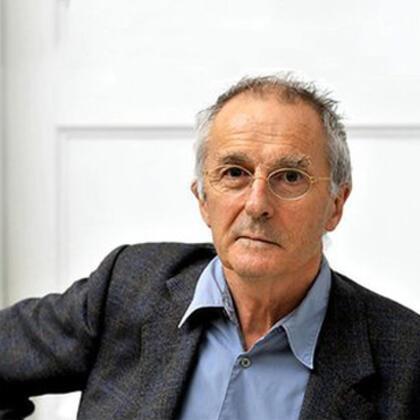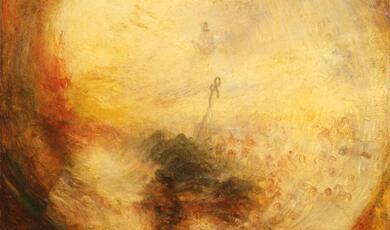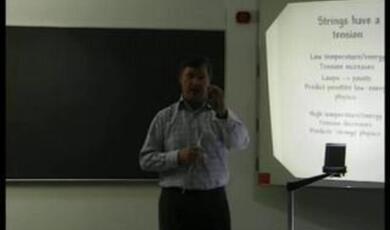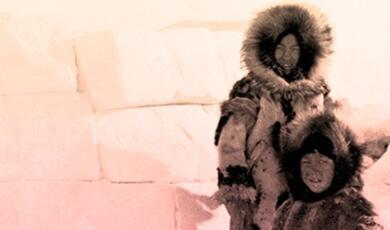Incest and Folk-Dancing: Two things to be avoided
Share
- Details
- Transcript
- Audio
- Downloads
- Extra Reading
How closely are we related to each other, and how recently do we all share an ancestor? The answer to those questions is: closer and more recently than you might think.
Professor Jones discusses patterns of relatedness in ancient and modern populations and how they can be measured from the records, from surnames, and - more and more - from the DNA. The pedigree hidden in every genome reveals some quite unexpected patterns of kinship and suggests that some may be very relevant to the chances of disease. However, the evidence that close kinship is breaking down is, in this modern and mobile world, very persuasive and it may be that the most important event in human evolution, and even in human health, was the invention of the bicycle.
Download Transcript
17 January 2013
Incest and Folk-Dancing:
Two Things to Be Avoided
Professor Steve Jones
John Maddox Born 1925; Crickadarn; Hay Festival; Editor of Nature;
Famous for jokes – e.g. published description of Loch Ness monster by Peter Scott – Nessiteras rhombopteryx; Greek for Ness Wonder with diamond shaped fin – but in fact. In fact anagram of Monster Hoax by Sir Peter S. Trouble with the editors.
Told me a joke that I use to point out difficulty of separating the results of natural selection from that of intelligent design; sex on mars joke.
Maddox – interesting, rather rare, name; very Welsh, descends from Madog, the Welsh Prince who, as everyone knows, discovered America in 1170 AD. Landed in Mobile Bay, Alabama; claimed that there was a tribe of Welsh speaking Indians there until conveniently wiped out by smallpox. Thomas Jefferson asked the Explorers Lewis and Clark to look out for them, but never found them. As will see, in this talk, bring together his name, and the history of the Indians; so, on with the talk.
Thomas Beecham – try anything once except incest and folk dancing (also said – everything in music has its place; even a brass band, but its place is in the open air and twenty miles away)
Most of us would agree – but we would be wrong, for all of us come from matings between relatives. Shake hands with person next to you – sixth cousin.
Geneticist – my job is to make sex boring. What is sex – bizarre pastime, means that one individual has two parents, four grandparents etc.
We are all related, because we have no choice:
Armageddon 722 BC Megiddo; Sargon; lost tribes, reassemble – all who have lived will come together on Day of Judgment. Perhaps 50 generations at 40 yrs a generation since then – get to enormous figure.
More interesting How many will be at Armageddon – 2 4 8 16 Sums
I.e. not enough ancestors – must share them.
Tree series – see with Y chromosome. Rapidly get to shared ancestor.
Britain – 50% chance of Shared ancestor around 200 yrs ago – about Date of Origin of Species.
Charles Darwin - £10 note - last you will see for a while. Treasury story.
Darwin – concerned about inbreeding – married his own cousin Emma.
Francis Galton – surname story Italy. Inbreeding. Concerned about effects on health –
Spanish Royal Family – extreme inbreeding;
Charles of Spain Ancestry – loops health – Philip V unbalanced, Ferdinand IV over sensual, Isabel II nymphomaniac, Alfonso XII tubercular.
More extreme example; inbreeding in Pharaohs - brother-sister mating common. Akhenaten, 1300BC, married his cousin Nefertiti, then a lesser wife, Kiya, and then three of his own daughters by Nefertiti and then (possibly) his own mother. The story is confused by difficulties with identifying quite who was who (and one of his supposed wives was in fact male) but incestuous affairs were without doubt common Egypt. Cleopatra herself the scion of ten generations of brother-sister unions.The practice is condemned in Leviticus, where the Children of Israel were enjoined that “After the doings of the land of Egypt, wherein ye dwelt, shall ye not do”. That injunction was the foundation of Church Law about permitted degrees of marriage.
Recent – Xray of Tutankhamu; son of brother-sister union – severe feet problems, walking stick in tomb.
Might think untrue in British royal family – but Prince Charles and Lady Di.
CD – decided to study. Flowers, selfing; ie evolution grammar of biology. Can see e.g. in Dogs, 2 x bulldog, dog population structure – extreme subdivision – i.e. each breed is highly inbred.
What about humans?
One odd test – crews of oxford and Cambridge boat clubs – less likely to be children of cousins than were nerds in library.
Then – brilliant idea - can test the extent of inbreeding by counting the incidence of marriage with someone of same name as self. ISONYMY – best for rare names like, indeed, Darwin. Now widely used.
Average time depth of English name – 700 yrs (Wales – 300yrs). Japan – except for governing class – only 150 yrs; China – commonest name in world (Li) – average depth is 5000years!
In fact clear evidence that names show shared ancestry – take rare name, look at Y – see if shared names share Ys – yes! Attenborough versus Smith. Of interest to the police.
High Kings of Ireland – many Irish families claim descent from – O’Connell, etc – high rates of isonymy in Ireland.
Y chromosome – Niall of the Nine Hostages C 5th. Fits Y chromosome.
British surname diversity – huge differences. Partly reflects recent naming – e.g. Wales, Jones, but also a statement of past inbreeding – look e.g. at Northern Isles cfd to London. Will return to this.
So what is pattern worldwide?
Figures on coefficient of inbreeding – only two really important; but build up over time.
Percent of consent marriages in global total - significant
Map of consanguinity; concentrated in Middle East, S India. Pakistani population of Bradford – among most inbred in world.
Clear effects on health – doubling; shared ancestor Mendel’s wand – each die 2.4 times. Now, though, see some close inbreeding nearer home.
Use not just surnames, but genetic surnames –lengths of homozygous haplotype – do not break up; if have two copies, likely to descend from common ancestor.
Can see globally – spread across globe map
Heterozygosity and distance from Addis Ababa. Bottleneck diagram; linkage disequilibrium – how long is the haplotype?
Now local populations – first Croatia islands on map.
Then, runs of homozygosity – look at Orkney! Orkney surnames – Carr, Mack, Flett; i.e. surprisingly inbred.
Now mapped across the world – striking differences – much more inbreeding on Oceania islands (also new world – ancient bottleneck). Europe – low ROH – Africa ditto; have been there a long time, much movement in spite of tribal structure.
This tech – shows effect of inbreeding on overall health – massive runs in boy, perhaps from incestuous relationship, with multiple health problems. Also cancer – more runs of homozygosity in colon cancer patients
Also effect on infection – more infection in homozygous patients.
Last – leads to the larger question – why sex?
Larger issue; sex – the fight against inbreeding. Test; Slugs – why sex survives – disease argument
But look on bright side – decline with time. Britain open – half of all children with afro-carib parent have white parent as well.
Decrease in roh with time in USA
Marriage distance – Jones shift – triumph of the mongrels.
How to measure - isonymy, Darwin, following Galton’s work in Italy. Now even better – can do with genes. One clear fit – Y chromosome. Family tree. Rare names – often have single Y chromosome shared among all – Attenborough story.
In fact not just the Y – any length of chromosome; will break up by recombination, but if recent bottleneck and inbreeding will be doubly homozygous. Runs of homozygosity. Attenborough and DNA letters – identity by descent.
Relevant to inborn disease; many parents of v rare recessives are closely related – e.g. Garrod’s alkaptonuria – more than half of parents were cousins.
Now – new technique – ROH. Can be extreme – inbred boy; incestuous relationship.
Croatia story, Orkney. Effects on cancer.
Also striking pattern across globe – genetics and distance from east Africa; repeated bottlenecks. I worked out – 80 people out of Africa.
Global patterns of ROH across world – much longer runs in remote places. I.e. repeated bottlenecks.
Some populations - more recent bottlenecks. Ashkenaze Jews – good hist evil of bottleneck in firsts diaspora AD 70, again in 11th – 14th Century.
What of future – admixture. . History has always been made in bed, but the beds are getting closer together. Once, we stayed close to where we were born and populations could build their own identity. Now, we no longer have to marry the girl or boy next door but can hop onto a plane and find a mate from miles away. American Jews show effect.
Also true on larger scale. Britain – half of all children with one Afro-Caribbean parent the other parent is white. Also – can see striking decrease of lengths of runs of homozygosity by birth date in USA – i.e. out breeding. Probable decrease in recessive genetic disease.
In fact do not need genetics at all – can use surnames – Jones Story
© Professor Steve Jones 2013
This event was on Thu, 17 Jan 2013
Support Gresham
Gresham College has offered an outstanding education to the public free of charge for over 400 years. Today, Gresham plays an important role in fostering a love of learning and a greater understanding of ourselves and the world around us. Your donation will help to widen our reach and to broaden our audience, allowing more people to benefit from a high-quality education from some of the brightest minds.


 Login
Login
